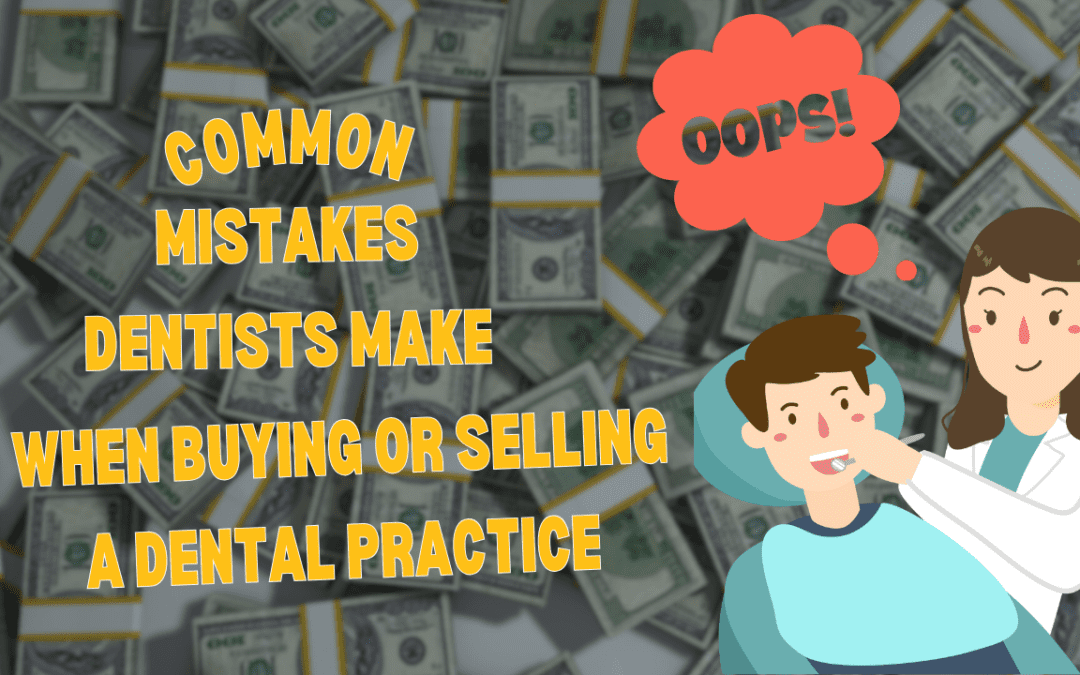Last week on Getting Down to Business we interviewed Cheryl Burgmaier, CPA, CFP®, of Burgmaier & Associates. You can watch the whole episode on YouTube by clicking this link here. During the conversation Kelly Yardman, our business broker here at Hindley Burgmaier Group posed several questions that Cheryl answered. One of the questions was what are some common mistakes that dentist make when buying or selling a dental practice.
Pitfalls Sellers Can Avoid:
Once the sale is made, a huge chunk of money is now available to the selling doc. It may be quite tempting to invest all that money right away, but this would not be wise. Why not? Well, for starters think of the tax implication of selling a dental practice for upwards of seven figures. It is not going to go unnoticed by Uncle Sam, and he will be calling at tax time to collect what he is owed. So instead of dumping all that cash into the market, which is volatile, a selling doc may want to consider a high yield savings account instead. Having access to that money, without having to take on any capital gains tax should the money be required sooner rather than later is something to seriously consider. Again parking all of the money from the sale of the practice will be an additional tax burden if the market is moving up, so it may be best not to put all those eggs into the market.
As Cheryl put it “there should be some that’s put off into a high yield savings account so they have access to that money when they need to pay their taxes. The one thing you don’t want to do is think YAY I sold my practice, now I have a million dollars, let me put the entire thing into the market. The market goes up and down, ebbs and flows. Then tax time comes and you have a tax bill of $200,000 because you have a massive capital gain from the sale of your practice. Now you have to sell stock at a loss to pay, and it costs more than $200,000 to pay that tax. Cheryl goes on to say that docs need to have a good plan for the money on the backend of the sale. Making sure of what needs to be kept liquid to be able to cover taxes, and then what is the plan for the other money will prevent a nasty surprise come tax time.
Pitfalls Buyers Can Avoid:
If someone is doing due diligence for buying a dental practice, start by looking at the profitability of the practice. Cheryl cites her experience working with buyers where they have overpaid for a practice, noting that while there may be potential for growth, the selling doctors mindset isn’t necessarily going to be on growing the practice. Additionally the new doctor is still learning so it may take some time to get things to start trending upwards once he takes ownership. The doctor that’s been working in the practice for the past 30 years is going to be way better at selling treatment plans than the new doc.


